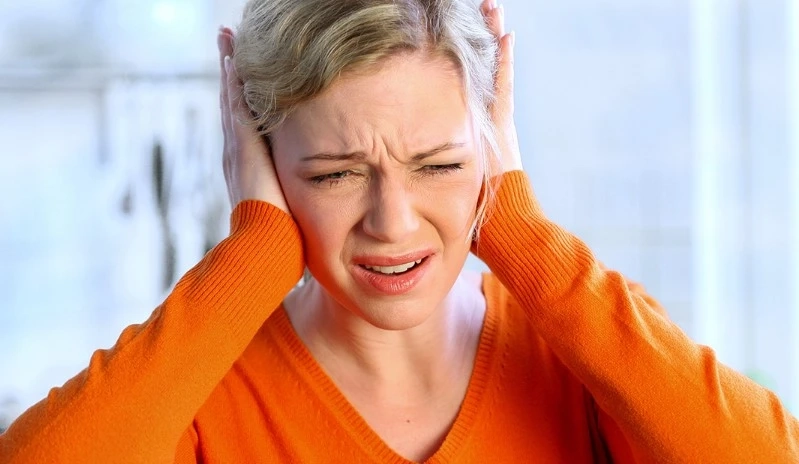Imagine a constant, high-pitched ringing or buzzing in your ears that never seems to go away. For millions of people, this is a reality, and it's a condition known as tinnitus.
Tinnitus can be frustrating, distracting, and even anxiety-inducing. However, there is hope. The best ENT specialist in Lahore can fix any ear problem you might have.
Let’s explore the causes and symptoms of ringing in the ears and provide you with effective tips to help alleviate and manage this persistent condition.
What are the Causes of Ringing in the Ears?
It's essential to understand what might be causing it. Tinnitus is often a symptom of an underlying issue, and identifying the root cause is the first step in finding relief.
Common causes of tinnitus include:
Exposure to Loud Noises
Prolonged exposure to loud sounds, such as concerts, heavy machinery, or firearms, can damage the delicate hair cells in the inner ear, leading to tinnitus.
Aging
As we age, our auditory system undergoes natural changes, which can result in tinnitus for many individuals.
Earwax Blockage
A buildup of earwax can interfere with the conduction of sound in the ear canal, leading to tinnitus.
Hearing Loss
Hearing loss, whether age-related or due to other factors, is closely linked to tinnitus.
Head or Neck Injuries
Trauma to the head or neck can damage the auditory system and lead to tinnitus.
Stress and Anxiety
High-stress levels and anxiety can exacerbate existing tinnitus or even be a primary cause.
What are the Symptoms of Ringing in the Ears?
Tinnitus presents itself in different ways, and its severity can vary from person to person. Common symptoms of ringing in the ears include:
Constant or Intermittent Ringing: The most common symptom of tinnitus is a constant or intermittent ringing, buzzing, hissing, or clicking sound in one or both ears.Variation in Sound: Some individuals with tinnitus experience changes in the pitch or tone of the ringing. It may be high-pitched, low-pitched, or even sound like music.Hearing Impairment: Tinnitus can accompany hearing loss, making it challenging to hear conversations or sounds clearly.Sleep Disturbances: Tinnitus can become more noticeable at night when the surrounding environment is quieter, making it difficult to sleep.Concentration and Emotional Impact: The persistent sound can be mentally distressing, leading to difficulty concentrating and heightened stress or anxiety levels.Tips to Get Rid of Ringing in Ears
Managing tinnitus effectively requires a combination of lifestyle changes and, in some cases, medical interventions.
Here are practical tips to help you find relief from the constant ringing in your ears:
Protect Your Ears from Loud Noises
To prevent noise-induced tinnitus, wear hearing protection when exposed to loud environments, such as concerts, construction sites, or while using power tools.
Manage Stress
Stress can exacerbate tinnitus, so engage in stress-reduction techniques like meditation, yoga, or deep breathing exercises. These methods can help you relax and cope with the symptoms.
Limit Caffeine and Alcohol
Reducing your intake of caffeine and alcohol may alleviate tinnitus, as these substances can worsen symptoms in some individuals.
Avoid Ototoxic Medications
If you suspect that your medication may be causing tinnitus, consult your healthcare provider. They can prescribe alternative medications that do not have ototoxic side effects.
Treat Earwax Buildup
If you suspect that earwax is the cause of your tinnitus, avoid inserting objects into your ear canal. Instead, consult a healthcare professional for safe removal.
Maintain a Healthy Diet
A well-balanced diet can improve overall health, potentially reducing tinnitus symptoms. Incorporate foods rich in vitamins and minerals like zinc, B vitamins, and magnesium.
Stay Active
Regular physical activity can improve blood circulation, which may help reduce the severity of tinnitus.
Sound Therapy
Using background noise or white noise machines can help mask the ringing in your ears, making it less noticeable. You can also try listening to calming music or nature sounds.
Hearing Aids
If hearing loss accompanies your tinnitus, hearing aids can amplify external sounds, which may reduce your focus on the internal ringing.
Tinnitus Retraining Therapy (TRT)
TRT is a therapeutic approach that combines counseling and sound therapy to help you habituate to the sound of tinnitus, making it less bothersome over time.
Cognitive-behavioral therapy (CBT)
CBT can help you manage the emotional distress associated with tinnitus. It teaches coping strategies and relaxation techniques.
Medication Options
In some cases, healthcare providers may prescribe medication, such as antidepressants or anti-anxiety drugs, to help manage the emotional impact of tinnitus.
Consult an ENT Specialist
If your tinnitus is particularly severe and affecting your quality of life, consider seeking help from an audiologist or an ear, nose, and throat specialist who can provide tailored treatment options.
While there may not be a universal "cure" for tinnitus, these strategies can help you manage and alleviate its symptoms.


